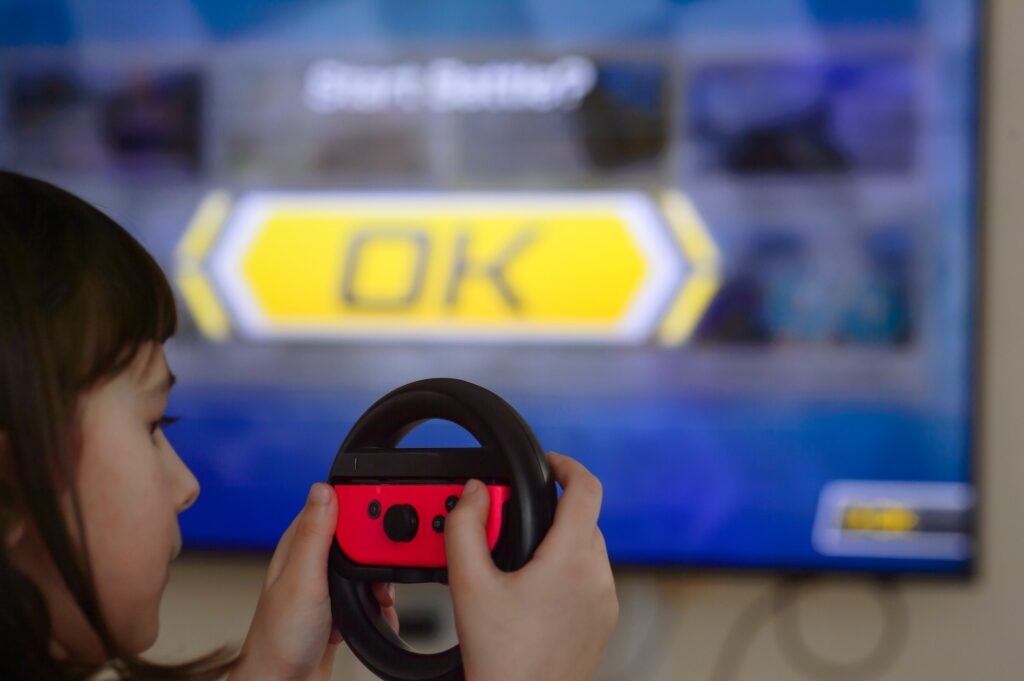Parenting
Video Games
Unlocking the Power of Video Games
Raising a child with autism comes with its unique challenges and opportunities. As a parent, you may have heard mixed opinions about video games and their impact on children with autism. However, when used appropriately, video games can be a valuable tool for learning and development. In this guide, we will explore why video games can help children with autism, discuss the pros and cons, and suggest some video games that are well-suited for children with autism.
Why Video Games Can Help Children with Autism:

Engaging and Structured Play
Many children with autism struggle with social interactions and imaginative play. Video games provide a structured and predictable environment that can help them develop essential skills, such as turn-taking, problem-solving, and decision-making.

Visual and Auditory Stimulation
Children with autism often have a heightened sensitivity to visual and auditory stimuli. Video games, with their captivating graphics and immersive sound effects, can engage and stimulate their senses in a controlled and manageable way, helping to develop sensory integration skills.


Cognitive Development
Certain video games can enhance cognitive abilities in children with autism. Puzzle-solving games, for example, can improve their logical reasoning and critical thinking skills. Additionally, strategy games can foster planning, organization, and decision-making abilities.

Communication and Social Skills
Many video games offer online multiplayer modes, which can provide a platform for children with autism to interact with others in a less intimidating environment. Cooperative games, where teamwork is essential, can promote social interaction, collaboration, and communication skills.

Pros of Video Games for Children with Autism

Tailored Learning
Video games can be customized to suit a child's abilities and interests, allowing them to learn and progress at their own pace.

Motivation & Engagement
The interactive nature of video games can motivate children with autism to actively participate and persist in challenging tasks, enhancing their motivation and engagement.

Generalization of Skills
Skills acquired through video games can often transfer to real-world situations, leading to improvements in problem-solving, decision-making, and attention span.
Cons of Video Games for Children with Autism

Excessive Screen Time
Excessive screen time can have negative effects on children's physical health and may lead to sedentary behavior. It's essential to set limits and ensure a balanced approach to screen time.

Lack of Face-to-Face Interaction
While video games can promote social interaction, they cannot fully replace face-to-face communication and social engagement. Parents should encourage a healthy balance between virtual and real-life interactions.

Online Gaming
With some video games, children have the ability to play online with strangers, including adults. Online gaming can be a toxic and unsafe environment for all children, not just those with autism. Inappropriate language, bullying, and predators are a few of the dangers of online play.
Video Games Suitable for Children with Autism
Games that prioritize clear instructions, sensory-friendly experiences, and opportunities for self-expression can offer an inclusive and engaging environment for children with autism. Here are a few options to consider:

Minecraft
This sandbox game encourages creativity, problem-solving, and social interaction through cooperative gameplay.

LEGO Games
Based on popular franchises like Star Wars or Marvel, these games offer fun and engaging gameplay, promoting problem-solving and fine motor skills.

Journey
A visually stunning game with a serene atmosphere, Journey encourages exploration, cooperation, and emotional expression.

Pokémon Series
These games involve collecting, strategy, and turn-based battles, fostering memory, decision-making, and social interaction.

Stardew Valley
A farming simulation game that promotes routine, responsibility, and resource management, while also offering opportunities for social interactions with in-game characters.

Animal Crossing
Animal Crossing is a popular life simulation game where players create and manage their own virtual village inhabited by talking animals. It is beneficial for children with autism as it offers a calming and predictable environment, promotes routine-building and social interactions, and encourages creativity and self-expression through various activities like fishing, bug catching, and decorating.
Guide Disclaimer
The information provided in this article is intended for general informational purposes only and should not be considered as professional advice or a substitute for medical, therapeutic, or educational guidance. Every individual’s needs are unique, and what works for one person may not work for another. It is essential to consult with qualified professionals, such as doctors, psychologists, therapists, or educators, who can provide individualized recommendations and support tailored to your specific needs.


